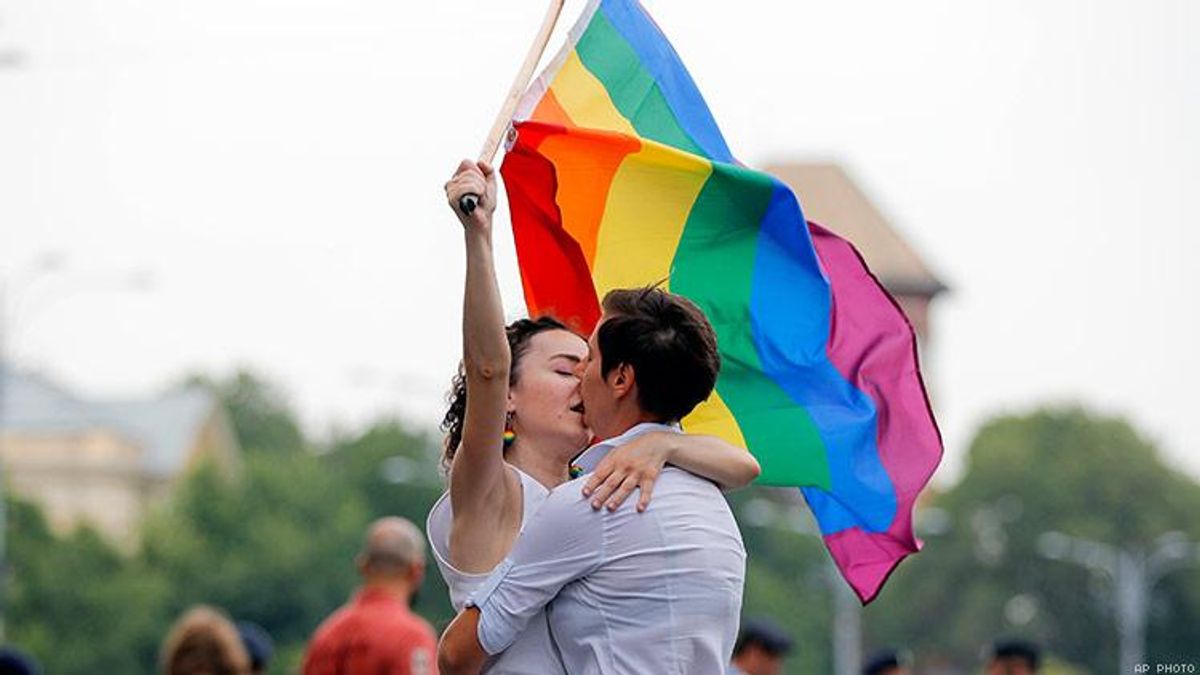Marriage Equality
Romanian Anti-Marriage Equality Measure Fails Spectacularly

Only 20 percent of eligible voters cast ballots on a constitutional amendment to ban same-sex marriage.
October 08 2018 5:09 PM EST
May 31 2023 8:09 PM EST
trudestress
By continuing to use our site, you agree to our Private Policy and Terms of Use.

Only 20 percent of eligible voters cast ballots on a constitutional amendment to ban same-sex marriage.
Amending their country's constitution to ban same-sex marriage was apparently not a high priority for Romanians, as a measure to do so failed this weekend because of low voter turnout.
Only about 20 percent of eligible voters cast ballots on the amendment Saturday and Sunday, and the nation required 30 percent turnout to make the vote binding, The New York Times reports. Final results are expected to be released today, but the lack of turnout makes that moot.
Many observers were surprised by the low voter interest, as a public opinion poll Friday showed support for the amendment at 90 percent, according to the BBC. Three million voters had signed a petition to put the amendment on the ballot; it was initiated by a conservative group called Coalition for the Family.
Romania does not currently allow same-sex marriages or civil unions, but the amendment was designed to prevent future moves to legalize them. The constitution uses the gender-neutral term "spouses" in describing marriage, but the amendment would have made it clear that the country recognizes marriages only between a man and a woman.
The amendment had the support of the influential Romanian Orthodox Church and all but one of the political parties represented in Parliament, including the ruling Social Democratic Party. But opponents saw it as a way to divide Romanians and distract from corruption charges brought against the Social Democrats' leader, Liviu Dragnea, the BBC reports. Investigations of party corruption are continuing.
"The [Social Democrats] staked everything on the referendum, by associating with it and trying to capitalize on it," Sergiu Miscoiu, a political science professor at Babes-Bolyai University, told Reuters. "What remains is the fact that many citizens have associated the initiative with the [party] and that is why they boycotted it. Either way, it is a major sanction against the government."
LGBTQ leaders called on the government to legalize civil unions for same-sex couples in light of the amendment's failure. "For the LGBT community in Romania this is a huge victory after three years of fighting against conservative voices, against hate speech," said Vlad Viski of LGBTIQ rights group Mozaiq in a statement released by Amnesty International.
"We are glad and we applaud the Romanian people for standing up against intolerance and hatred. It is a huge victory for the Romanian democracy, which keeps Romania on its European path, where minorities are respected. Seventeen years after the 2001 decriminalization of homosexuality, we see that Romanian society is changing for the best. We have gained thousands of allies throughout this fight for equal rights and now we are asking major political parties to show responsibility and legalize civil unions as soon as possible. We deserve rights, we want rights, we won't stop."
Romania is one of very few European Union countries that do not allow same-sex marriage or civil unions. The European Court of Justice ruled in June that E.U. countries must recognize same-sex marriages performed elsewhere, regardless of an individual country's law, and last month Romania's Constitutional Court ruled that same-sex couples must have equal rights to form families, but Parliament has yet to act on that directive.